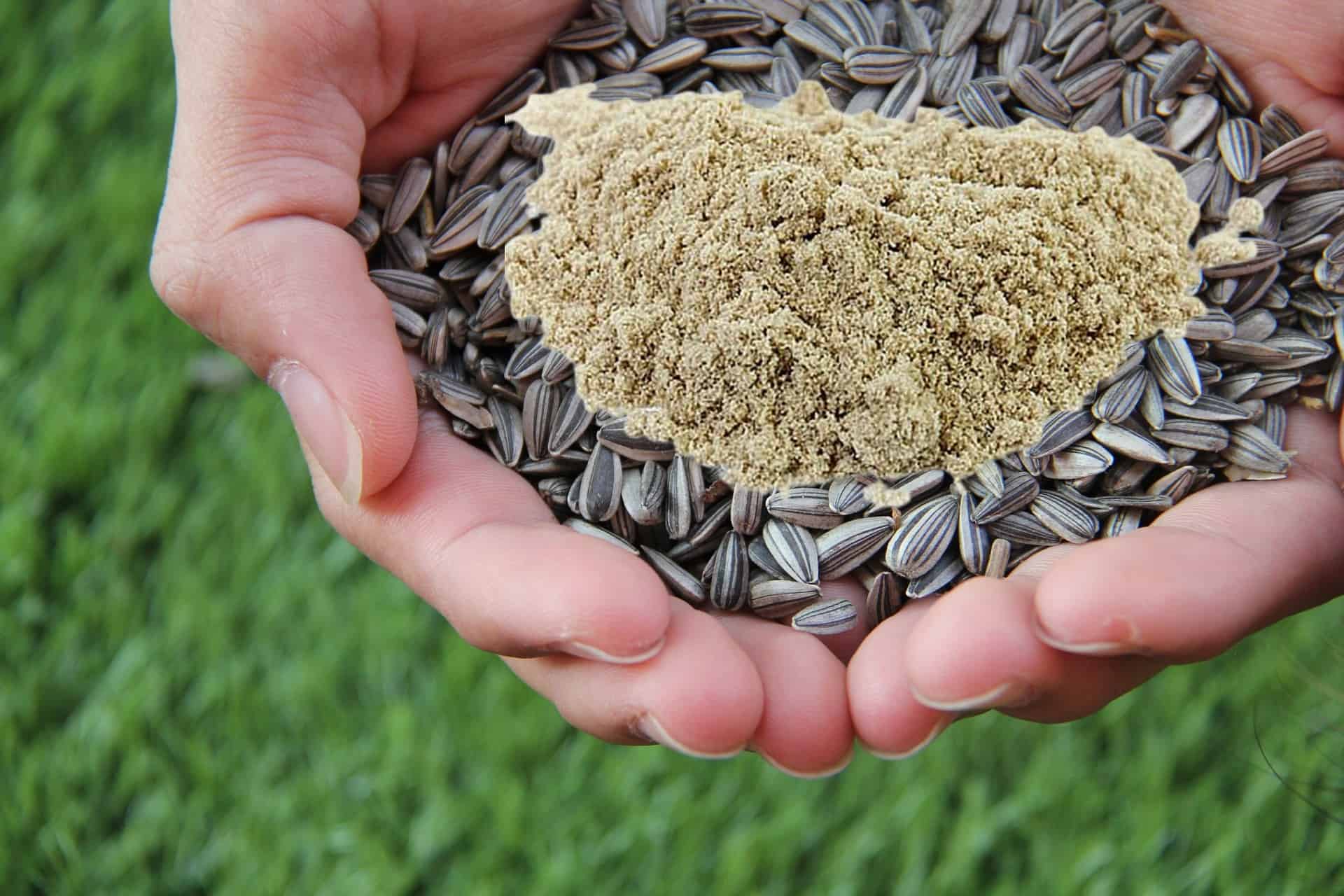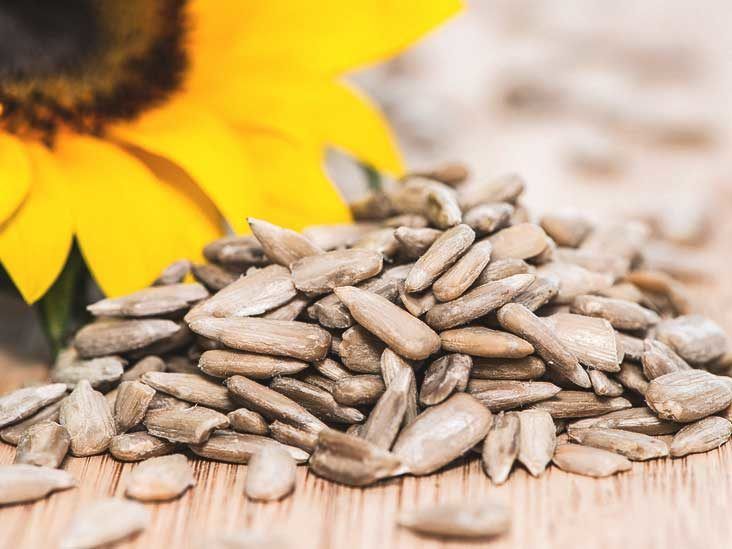Is sunflower seed complete protein?
Sunflower Seed Protein: A complete protein source
Sunflower seed protein is emerging as a popular plant-based alternative for those looking to enhance their protein intake without relying on animal products. Extracted from sunflower seeds (Helianthus annuus), this protein is rich in essential amino acids, healthy fats, vitamins, and minerals, making it a powerhouse of nutrition. Whether you are an athlete, a vegan, or someone looking for a clean protein source, sunflower seed protein is an excellent choice for supporting overall health and wellness.

High-Quality Plant-Based Protein: Meeting Daily Nutritional Needs
Sunflower seed protein provides a well-balanced amino acid profile, essential for muscle repair, immune function, and overall body maintenance. It contains significant amounts of leucine, isoleucine, and valine—three essential branched-chain amino acids (BCAAs) that are particularly beneficial for muscle recovery and energy production.
Compared to other plant-based proteins, such as pea or rice protein, sunflower seed protein offers a neutral taste and smooth texture, making it an ideal ingredient for protein powders, smoothies, and baked goods. Additionally, it is free from common allergens like soy, dairy, and gluten, making it a safe option for individuals with dietary restrictions.

How much protein are in Sunflower Seed?
Protein: 6 grams of protein per 1 ounce (28 grams) per the USDA.
These tiny but mighty seeds have about 6 grams of protein per ounce, plus so much more. MacLeod says, ”Sunflower seeds are a delicious source of protein and other nutrients, vitamins and minerals. They are often found in different nutrition bars and are a great addition to your favorite trail mix recipe.

Rich in Essential Nutrients: Supporting Overall Wellness
Beyond protein content, sunflower seed protein is packed with important vitamins and minerals, including:
Vitamin E: A powerful antioxidant that supports skin health and reduces oxidative stress.
Magnesium: Essential for muscle function, nerve signaling, and energy production.
Iron: Crucial for oxygen transport in the blood and preventing anemia.
Zinc: Plays a vital role in immune support, wound healing, and enzymatic reactions.
These nutrients contribute to overall well-being, making sunflower seed protein a valuable addition to a balanced diet.

Digestibility and Gut Health: A Gentle Alternative to Other Proteins
One major advantage of sunflower seed protein is its easy digestibility. Unlike whey protein, which can cause bloating or digestive discomfort for those with lactose intolerance, sunflower seed protein is gentle on the stomach. It also contains natural fiber, which promotes a healthy gut microbiome and aids digestion.
Additionally, sunflower seed protein lacks common antinutrients found in some other plant proteins, such as soy, which contains phytoestrogens and lectins that may interfere with nutrient absorption. This makes sunflower protein an excellent choice for those seeking optimal nutrient intake.

Weight Management and Satiety: Aiding in Healthy Lifestyle Goals
Protein plays a crucial role in weight management by promoting satiety and reducing cravings. Sunflower seed protein is rich in protein and fiber, which helps control hunger and maintain a stable energy level throughout the day. Including sunflower seed protein in meals or snacks can help prevent overeating and support a healthy weight-loss plan.
Additionally, plant-based proteins like sunflower seed protein can boost metabolism, supporting the body’s ability to burn fat efficiently. When combined with a balanced diet and regular exercise, sunflower seed protein can contribute to achieving and maintaining a healthy weight.

Heart Health Benefits: Supporting Cardiovascular Function
Sunflower seed protein contains heart-healthy fats, including monounsaturated and polyunsaturated fats, which contribute to lower cholesterol levels and improved cardiovascular health. It is also naturally free from cholesterol and saturated fats found in some animal-based proteins.
Moreover, sunflower seeds contain phytosterols—plant compounds that help lower LDL (bad) cholesterol levels. Consuming sunflower seed protein as part of a heart-healthy diet may reduce the risk of heart disease and improve overall cardiovascular function.

How to Use Sunflower Seed Protein: Versatile and Delicious
Sunflower seed protein can be easily incorporated into a variety of meals and snacks. Here are some practical ways to use it:
1. Smoothies and Shakes: Blend with fruits, plant-based milk, and nuts for a nutritious post-workout drink.
2. Baking: Add to pancakes, muffins, and protein bars for an extra protein boost.
3. Soups and Stews: Stir into soups or sauces to enhance protein content.
4. Energy Balls: Mix with oats, nut butter, and honey for a quick, nutritious snack.

Since sunflower seed protein has a mild taste, it can seamlessly blend into different recipes without overpowering flavors.
Sustainable and Eco-Friendly: A Greener Protein Choice
Sunflower seed protein is an environmentally friendly protein source compared to animal-based proteins. Sunflower cultivation requires less water, land, and energy than livestock farming, making it a more sustainable option. Additionally, sunflower crops help improve soil health by preventing erosion and enhancing biodiversity.
Choosing plant-based proteins like sunflower seed protein contributes to reducing carbon footprints and promoting a more sustainable food system.

Conclusion: A Nutrient-Dense Protein for a Healthier Lifestyle
Sunflower seed protein is a high-quality, plant-based protein that offers a wealth of health benefits, from muscle recovery to heart health. Its rich nutritional profile, digestibility, and sustainability make it an excellent alternative for individuals looking to improve their diet while reducing their environmental impact.
Whether you're an athlete seeking muscle recovery, a vegan looking for a complete protein source, or someone striving for better overall health, sunflower seed protein is a fantastic addition to any balanced diet. Give it a try and experience the natural benefits of this powerful plant-based protein!
References:
U.S. Department of Agriculture. "Sunflower Seeds, Nutritional Profile." FoodData Central.
Ghosh, S., et al. "Health Benefits of Sunflower Seed Proteins and Bioactive Peptides." Journal of Food Science and Nutrition, 2021.
National Institutes of Health. "Dietary Protein and Muscle Metabolism." Nutrition Research Reviews, 2019.
Harvard T.H. Chan School of Public Health. "Plant-Based Proteins and Cardiovascular Health." Harvard Health Publishing, 2020.
